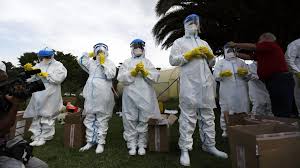Article

Letter: Three ‘Ds’ of our foreign policy are greater than the sum of their parts
Britain is at a crossroads in our relationship with the rest of the world and, whatever happens next on Brexit, we will need all the international clout we can muster.
Our country is acknowledged as among the best in the world at defence, diplomacy and development. We have an increasingly agile and effective diplomatic service. Our brilliant armed forces are globally respected. And the Department for International Development (DfID) is the world’s pre-eminent development agency, tackling global poverty, inequalities and climate change. Our influence is projected around the world through shrewd use of these three “Ds” of foreign policy. The whole is greater than the sum of the parts.
Of course, the three departments must work more closely together, but diminishing any of these three strands would leave the UK’s foreign policy unbalanced. So, we view threats to absorb international development into the Foreign Office as deeply unhelpful (“Johnson ready to shake up overseas aid if he wins vote”, December 11).
DfID’s work in some of the toughest places in the world, its longstanding international partnerships and recognised approach to transparency are fundamental to the UK’s international reputation. The recent Portland Index on soft power, which ranks the UK second, noted that merging DfID into the Foreign Office was “unlikely to be positive”.
The two departments are highly regarded precisely because they work together but remain distinct, enabling them to focus on what they do best. Tinkering with this world-class architecture and the definition of what counts as overseas aid risks damaging our capability to respond to emerging threats and challenges and reducing our influence at the very moment when we are seeking to relaunch Britain on the world stage.
Photo description / credit: Healthcare professionals recruited to respond to the Ebola emergency in Sierra Leone in 2015 / Getty.

